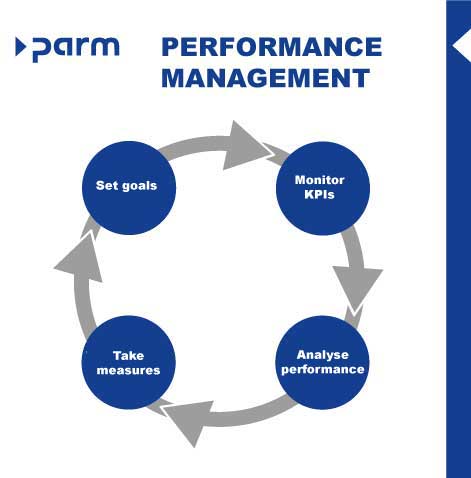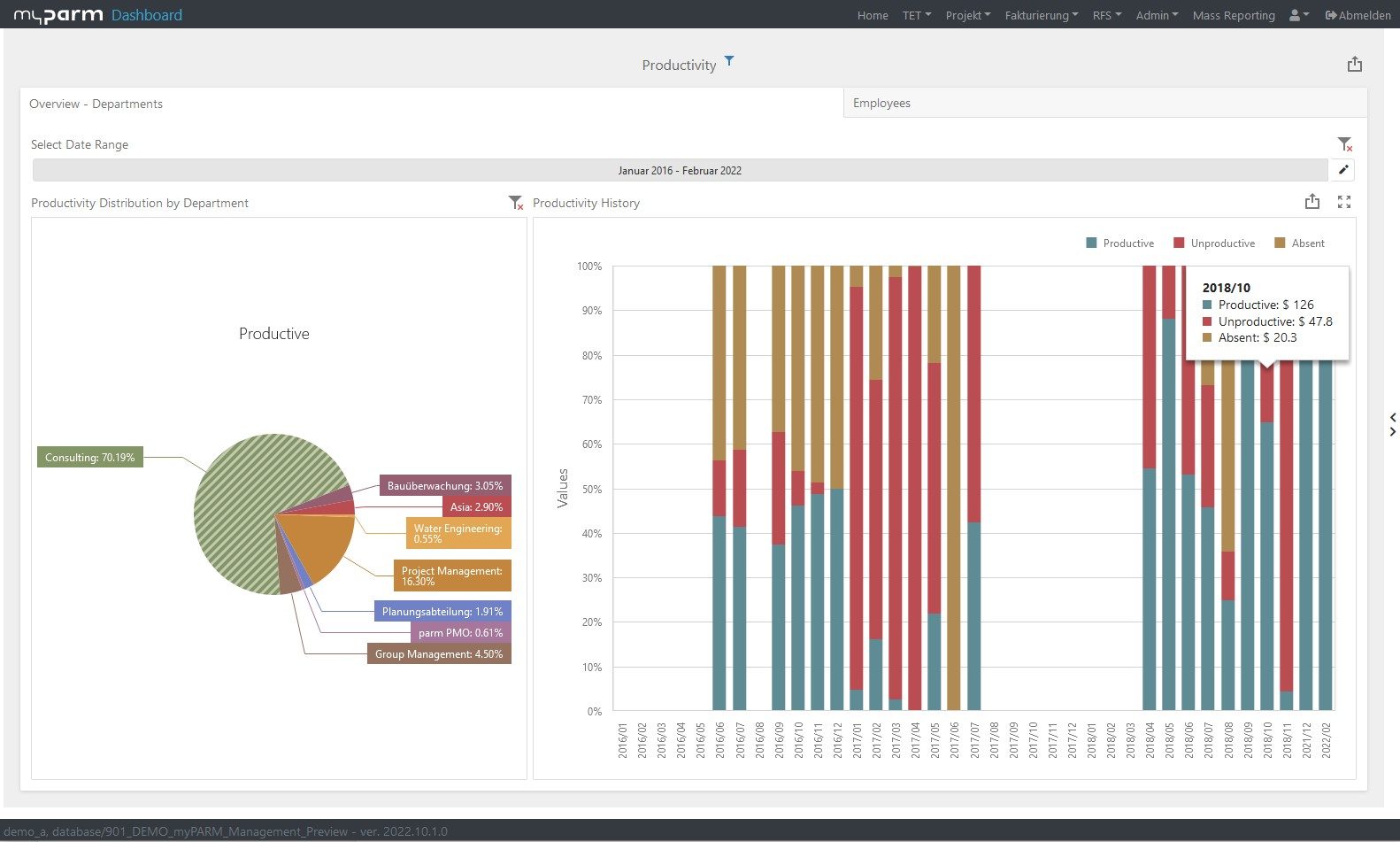Maximizing organizational success
How business intelligence tools improve performance management

Business intelligence helps companies to collect and analyze data in order to make well-founded decisions. In this way, business goals can be achieved. However, BI is particularly effective when it is integrated into the performance management strategy. Not only can the company’s performance be monitored in real time, but it can also be measured against strategic and operational goals to gain a particularly solid understanding of a company’s performance.
What is performance management?
Performance management is an essential part of modern business life. It refers to the process of planning, measuring and evaluating the performance of an organization to ensure that it achieves its goals. Therefore, performance management involves identifying goals and metrics, collecting data, analyzing key performance indicators, and implementing measures to improve performance.

There are different types of performance management that are used in different areas of the organization:
- Corporate Performance Management (CPM): CPM focuses on comprehensive performance management at the company level.
- Enterprise Performance Management (EPM): EPM is similar to CPM, which is why the term is often used as a synonym. However, enterprise performance management can be somewhat broader and also include other aspects of the company, such as risk management, governance, and compliance.
- Business Performance Management (BPM): BPM refers to a holistic approach that aims to manage and optimize the performance of all aspects of a business. It therefore includes processes, methods, and technologies to improve operational procedures.
- Financial Performance Management (FPM): FPM focuses specifically on measuring and evaluating the financial performance of an organization and therefore includes, for example, financial planning, budgeting, forecasting, reporting, and analysis.
- Operational Performance Management (OPM): In contrast, OPM is concerned with managing and improving the operational performance of an organization, including its efficiency, productivity, and the quality of processes and procedures.
- Strategic Performance Management (SPM): This approach focuses on managing and improving the performance of an organization in line with its strategic objectives. SPM therefore focuses on aligning all activities and resources with the organization’s long-term vision and mission.
Why is Performance-management important?
Performance management is important because it enables an organization to achieve its goals and maximize its success. By setting and measuring performance targets, an organization can improve its performance and increase its effectiveness. Performance management also makes it possible to identify performance problems and take countermeasures. It also helps to increase employee motivation and engagement by setting clear goals and expectations for them.
The relationship between business intelligence tools and performance management
Performance management involves defining, measuring and analyzing key performance indicators (KPIs). With business intelligence software, on the other hand, data from various sources can be collected, analyzed and visualized in real-time to gain insights into a company’s performance and support decision-making. Therefore, business intelligence and performance management complement each other and together enable business strategy to be aligned with operational activities. BI dashboards and reports can therefore be used to track and analyze performance indicators. For example, areas that could be optimized can be identified so that corrective measures can then be taken.
Advantages of using Business Intelligence-tools in Performance Management
The use of business intelligence tools offers numerous advantages for performance management.
- Data visibility and transparency: BI not only makes data from different sources visible but also helps to present it in a transparent and easy-to-understand way.
- Improved decision-making: With access to real-time data, decision-makers can make informed decisions to improve business performance.
- Increased efficiency: Data can be analyzed quickly and easily through BI software. Monitoring KPIs through BI software therefore helps companies to take early action to increase the efficiency of operations or processes.
- Clear alignment: By analyzing data, companies can ensure that the direction of operational activities is always aligned with the business strategy so that all defined measures work towards the same goal.
- Collaboration: BI also supports collaboration and knowledge sharing within the organization through easy access to information and analysis.

Challenges in the use of business intelligence tools for performance management
However, the use of business intelligence for performance management can also be associated with some challenges.
- Complex data structures: Companies often have data in different systems and formats. Seamlessly integrating these different data sources into a unified BI system can be a complex task that requires time and resources.
- Complex analytics: Advanced BI tools offer a variety of features and capabilities. Using these tools requires training and solid data literacy of employees to realize the full potential.
- Data quality and consistency: The quality of the data is crucial for meaningful analyses. Inconsistent, incorrect or outdated data can lead to incorrect findings. It is therefore important to ensure that the data in the BI systems is accurate, consistent and up to date.
- Initial effort: The implementation of BI systems can involve considerable effort and high costs. Careful planning and preparation are important to ensure that the implementation runs smoothly and achieves the desired results.
- Data protection and security: As the amount of data in BI systems increases, so does the importance of data protection and security. Adequately securing sensitive company data is important to comply with data protection regulations and prevent cyber-attacks.
Conclusion
The symbiotic combination of business intelligence and performance management offers great potential for maximizing business success. The holistic monitoring and analysis of performance indicators enables well-founded decisions, greater efficiency and a clear focus on strategic goals.
With the myPARM BIact business intelligence software, it is not only possible to measure and analyze performance indicators precisely and in real time. myPARM BIact also helps you take the next step in performance management. You can also define and plan specific measures within the software and control or monitor their implementation. With myPARM BIact, business intelligence not only becomes a source of information but also an active tool for the strategic management and optimization of company performance.
Learn more about the Business Intelligence Software Software myPARM BIact:
Would you like to get to know myPARM BIact in a demo presentation? Then make an appointment with us right away!
